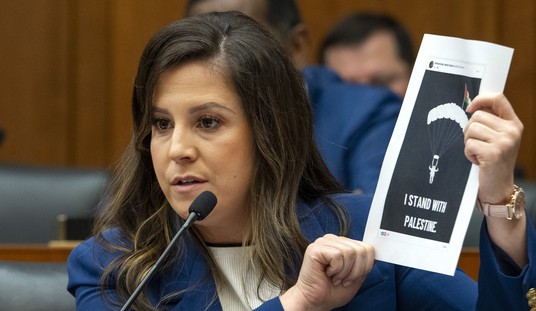Editor's note: This piece was co-authored by Utah Representative Stephanie Gricius.
In neighborhoods across America, families go about their daily lives, never imagining the shadow of violent cartels could be creeping into their communities. But make no mistake, these ruthless organizations are not just a border problem. They are here, exploiting financial loopholes to traffic drugs, launder money, and destroy lives. It is time to take a stand, and Utah has the opportunity to lead, alongside Oklahoma, in the fight against these criminal enterprises.
The past four years have proven one thing: Every state is now a border state. The Biden-Harris administration’s failure to secure our Nation’s borders has created a nationwide crisis, forcing states to shoulder financial and social burdens once confined to the border regions. Illegal immigration and cartel activities are massive economic drains on taxpayers. According to the Federation for American Immigration Reform, the net cost of illegal immigration in 2023 for the United States was at least $150.7 billion. Illegal immigration cost Utah taxpayers nearly $931 million in 2023 alone, with each illegal alien imposing an annual cost of $5,033 on the state. These costs include healthcare, education, and public services. This is unsustainable for local governments and states, to the detriment of the American taxpayer.
But beyond the economic toll, the human cost is immeasurable. Fentanyl smuggled across the border by these same criminal organizations is devastating families and communities. The Utah Department of Health and Human Services reported a 300% increase in fentanyl-related deaths over the past five years. Cartels are actively using illegal immigration as a smokescreen to push drugs deeper into American communities.
Law enforcement officers across the country are overwhelmed, healthcare systems are strained, and fentanyl — trafficked by the same criminal organizations profiting from illegal immigration — is killing our citizens at record rates. According to the America First Policy Institute, in 2021 alone, enough fentanyl was caught crossing our border to kill 2.5 billion people. We’ve learned that the drug cartels have operated a $13 billion industry right on our southern border.
Recommended
Thankfully, under the strong leadership of President Trump, Department of Homeland Security Secretary Kristi Noem, and former Immigration and Customs Enforcement Director Tom Homan, every effort is being made to secure the border, defeat the drug cartels, and end human trafficking. According to Customs and Border Protection, we saw a 36% decline in apprehensions at the southern border in January alone, thanks to their leadership. Despite this relentless pursuit to make America safe again, states must step up and do their part. In Utah, House Bill 284 (HB 284) is a powerful tool to disrupt cartel operations and set a precedent for the rest of the Nation.
One of the cartels’ primary financial lifelines is the unregulated use of wire transfer services. Unlike traditional banks, wire transfer services provide little oversight, allowing illegal immigrants and traffickers to funnel money across borders with ease. This enables organized crime and human smuggling to thrive. HB 284 introduces a 2% fee on international wire transfers, disrupting these financial networks while generating revenue to strengthen Utah’s security and support law enforcement.
This is not an untested concept — it is modeled after a highly successful policy in Oklahoma. A 1% remittance fee currently generates about $13 million each year, which helps fund taxpayer services. Given that Utah’s illegal alien population is like Oklahoma’s estimated 90,000, introducing a 2% fee could substantially enhance funding for law enforcement, healthcare, and education—sectors that are directly influenced by illegal immigration and cartel activities.
Every financial deterrent increases the cost and risk for bad actors. If wire transfers become less attractive due to the fee, law enforcement can expand financial scrutiny to alternative remittance systems. Cash-based alternatives are not as seamless or anonymous as digital transfers, forcing traffickers into riskier, more detectable transactions. Oklahoma’s experience proves this policy makes crime more expensive and inconvenient. It is a win for law-abiding citizens.
Utah is not alone in recognizing the power of this approach. Vice President JD Vance, while serving in the U.S. Senate, introduced the WIRED Act, a federal bill proposing a 10% fee on remittances to combat illicit activity and recoup lost tax revenue. Other states, including Ohio, are considering similar policies. Utah can lead the charge at the state level, proving that proactive measures can deter illegal activity and generate critical revenue to counteract its adverse effects. Other states should absolutely follow suit.
When states are inactive, drug cartels and human traffickers thrive. Criminals exploit weak policies, loopholes, and political inaction to sustain their operations. Utah is taking a stand. House Bill 284 powerfully declares that illegal activities and exploitation will face zero tolerance.
This bill can and will be a national model for fighting cartel influence, securing state resources, and ensuring that the price of illegal activity is too high to ignore. It is more than just a legislative measure. It is a call to action for Utah and the Nation. This is our opportunity to show President Trump and his administration we are behind him and that we will work with him to defend our communities and lead America in the fight against cartels and illegal trafficking.
Ashley Hayek is President of America First Works, former 2020 Trump Campaign Coalitions Director, and author of Beat the Elites. Stephanie Gricius is a Republican State Representative in Utah.

























Join the conversation as a VIP Member